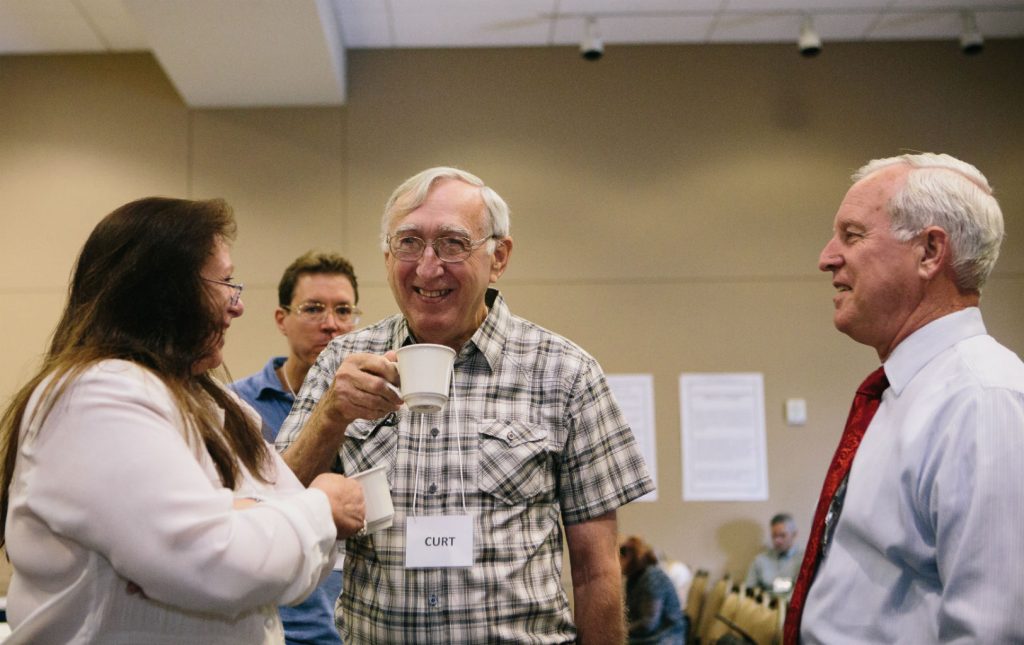In Part 1 of this post, I reviewed sociologist Sherry Turkle’s 2015 book, Reclaiming Conversation: The Power of Talk in a Digital Age, in which she makes the case for face-to-face conversation as a building block for empathy and constructive problem solving. Take a look at Part 1 for more details.
But if we’re having a hard time talking to each other, then what do we do now? Well, here are a few of our best ideas.
Technology and “all the wonders it brings,” as Turkle writes without sarcasm, should not be rejected – far from it. What a futile effort that would be, and what a missed opportunity. Rather, “we can both redesign technology and change how we bring it into our lives.” She recommends spaces – the dinner table, for example – that are designated as smartphone-free.
And in the political world? We see so many parallels. At every CIR, we are struck not only by the quality of the information provided to voters but by the – largely unseen but no less remarkable – feeling of cooperation and camaraderie created in the room. Citizen panelists enter the room on Day 1 as a disparate, somewhat uneasy group of politically diverse voters, and leave on Day 4 as devoted colleagues and, often, friends. So while we continue to develop the CIR, we are also investing in expanding these venues for in-person, transpartisan political problem solving beyond the initiative process.
For example, we are organizing new cross-sector round tables on major democratic issues – we’re calling them Democracy Salons – where small, diverse groups of thinkers will wrestle with current democratic issues. We’re also in the early stages of creating neighborhood-level venues where demographically diverse members of public at large will have the chance to talk with each other across ideological lines.
In addition, we’re actively creating school curricula to bring the active deliberative experience of the CIR to high school civics classes across the country. And in July, we’ll be organizing a new program in our home state called Community Oregon, where nominated community leaders from across the urban-rural divide will meet learn the skills of constructive dialogue, trade places with each other in a cross-state exchange program, and present their insights to the broader Oregon community.
Which is not to say we aren’t also investing in new technology – in web and mobile apps, for example, that will make our programs run smoother and help us train ever more folks in group process and media literacy. But we are convinced that it is face-to-face interaction that best fosters the cooperative atmosphere where complex decision-making is possible.
There is no kumbayah in that statement. Conversation is “hard work,” as one of Turkle‘s research subjects says. It is the often challenging, sometimes uncomfortable core of democracy. And the health of ours depends on it.
